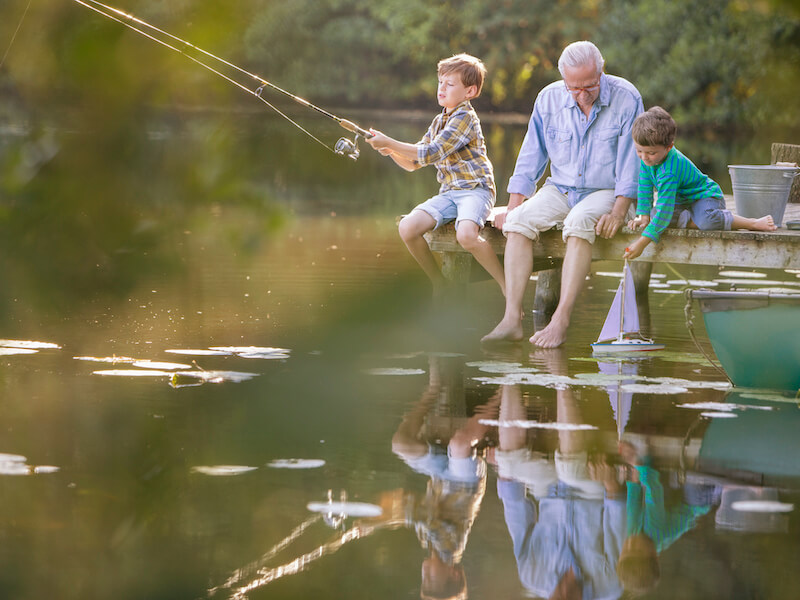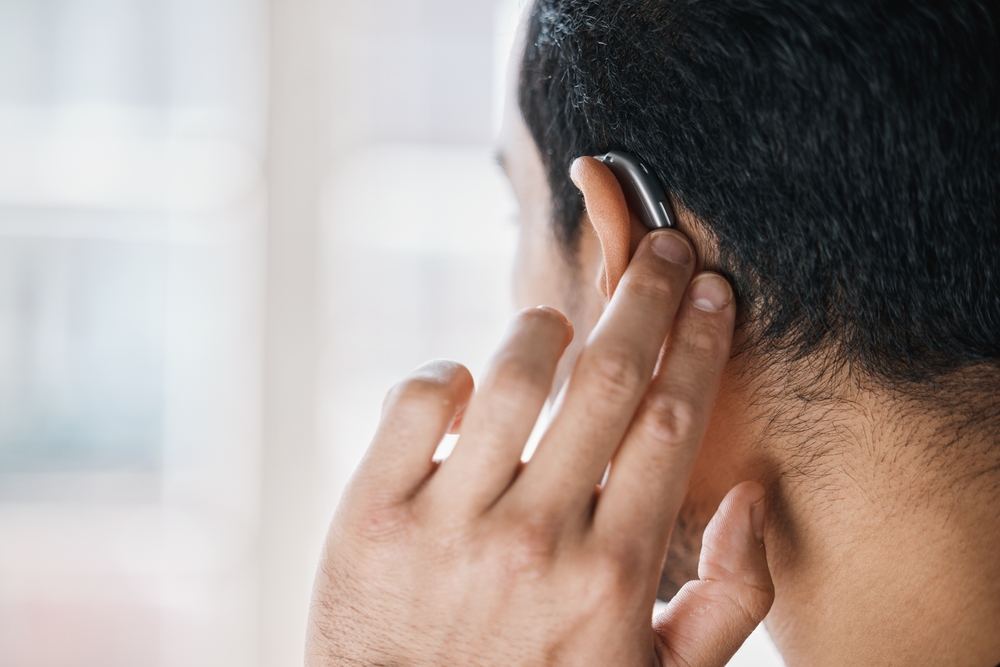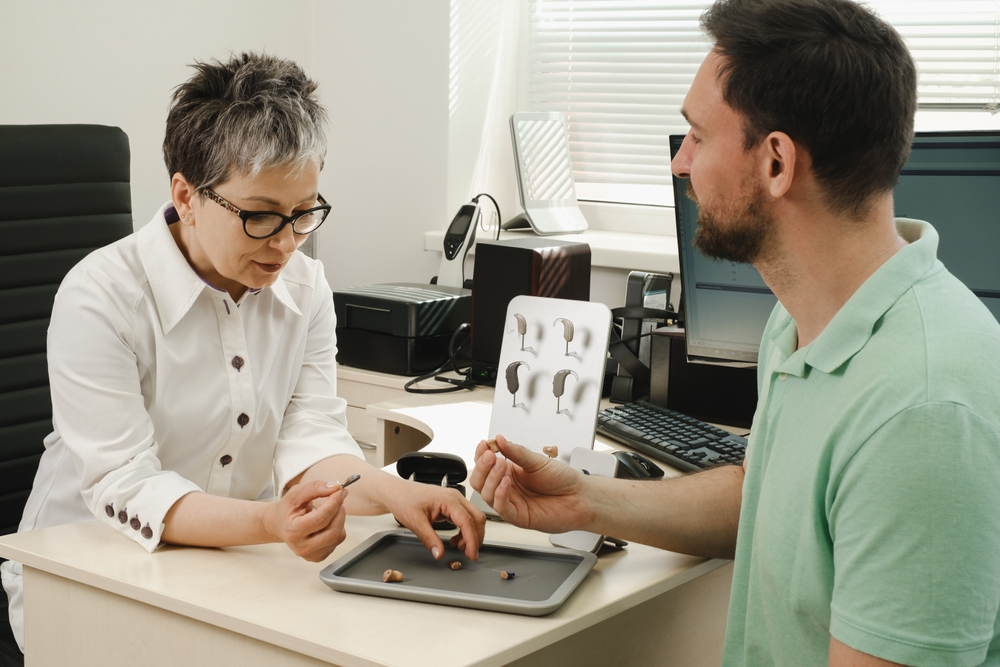Have you ever slept with your bedroom window open and woken up to the beautiful sound of birds singing just as the sun comes up? Turns out, there’s a name for all those birdsongs: the dawn chorus. For whatever reason, birds see the sun coming up and decide to start belting out their favorite songs. Each species has its own set of chirps and notes–and together, they sound like a symphony of nature.
Of course, if you have untreated hearing loss, you may not notice the dawn chorus at all. Which is a shame.
That’s especially true because it’s not just birdsong you might be missing out on. Summer is full of amazing sounds. And if you find yourself oblivious to the sounds of summer, it may be due to some undiagnosed (or diagnosed and ignored) hearing loss. The good news in these cases is that a device like a hearing aid may help you appreciate and enjoy your summer days more fully.
The sounds of summer
When you think about summer, you probably start off imagining a sun in a blue sky. And, a very, very hot sun (whew). But if you stick with your imagination a little longer, you’ll start adding details that make this blue sky feel more like summer–the sounds that fill out the day. You might be thinking about:
- The crashing of waves on the beach (or a babbling creek if you’re in a more landlocked area).
- The sound of birds chirping–especially in the spring during, ahem, mating season. (Humans aren’t the only species to employ love songs.)
- The buzzing of bees as they go about pollinating flowers and helping the landscape bloom.
- The symphony of frogs croaking at night, especially in the early hours of the evening.
- Something as simple as your grandkids laughing–maybe as they run around the yard or as you catch a baseball game together.
You get the idea. There are lots of sounds going on. These are the sounds that fill in your summer, give it texture, and help create that overall vibe. Plus, there is so much joy in these simple sounds themselves.
If these sounds of summer (or any sounds of summer) seem foreign to you these days, it’s likely because a noticeable amount of hearing loss has successfully snuck up on you. Once you’ve noticed that problem, the next step is to do something about it.
Hearing aids can help you enjoy summer
For most, hearing aids are really about building connections. They’re about communication. They make it easier to talk to others, to hear what’s happening around you, to enjoy the sounds that you hear. And that’s especially important at those summer barbecues, for example.
The newest models of hearing aids can help you bask in the sounds of summer–and they come with some pretty great built in tech, too. For example, most modern hearing aids offer:
- Rechargeability: You can recharge your hearing aid while you sleep and enjoy full batteries throughout the day. Basically, you can charge your hearing aids the same way you charge your cell phone. (This also makes traveling with hearing aids much easier.)
- Bluetooth Connectivity: Out on the boat and want to enjoy some tunes? Just connect the boat’s radio to your hearing aids via Bluetooth. You can do the same thing with your cell phone and take calls right through your hearing aid (with no disruptive feedback). Speaking of which…
- Smartphone compatibility: You can connect your hearing aids to your smartphone and start enjoying all sorts of features. Many phones will now enable you to download apps that help you control the settings on your hearing aids–so you can adjust for birdsong or grandchild laughter depending on what you want to hear at that moment.
- Noise reduction: If you want to hear the crashing of the waves–but not the roar of traffic behind you–you’ll want hearing aids that can help you sort through these sounds (just like your ears used to do). Modern hearing aids have significant noise reduction capabilities–so you can hear what you really want to hear.
- Automatic programming: Modern hearing aids can automatically adapt to new surroundings or times of days–depending on how you program them. This makes them easier to use and more effective.
- Machine learning: Fancy algorithms (called machine learning) can help your hearing aids adapt to what you need–even before you need it. This is especially handy when filtering sounds or in a noisy environment.
You can ask your hearing specialist about how your pair of hearing aids is suited to your favorite activities (for example, you can ask whether you can wear them while you’re swimming or hiking in the country–that kind of thing). Hearing aids and watersports don’t always play nice together. But in general, your hearing aids will make your summer an all around richer experience.
You’ll also want to ask your hearing specialist some basic questions about your hearing aid models. For example, you should ask, can hot weather affect my hearing aids? And you should also ask, how do I protect my hearing aids from humidity? (The answer to both will depend on the model of hearing aid you use.)
Though, there may be some sounds you want to avoid.
Maybe stay away from these sounds
As much as you enjoy the sound of the dawn chorus, there are some other summer sounds that could actually be damaging to your hearing–so you’ll probably want to stay away from them. These are sounds that are, well, noisy! And they’re damaging to everyone’s ears–not just those with pre-existing hearing loss. Some of those sounds include:
- Fireworks: The dogs are on to something. Attending fireworks shows can definitely damage your hearing. Likewise, being near home-launched fireworks can also be damaging to your ears (and limbs). Best to just avoid fireworks altogether.
- Boat motors: These motors are loud, so exercise some caution about proximity and duration. Try not to leave the motor idling when you’re fishing. Or, better yet, pop in some earplugs for the duration of your boat trip.
- Live music: Outdoor concerts are a great part of summer–but they can be damaging to your ears. This means you might want to be particular about which shows you see (rather than attending a festival every weekend).
This list is not exhaustive. Summer activities for people with hearing loss may not include quite as many of those fireworks-and-loud-noises-situations.
That said, you may not be able to–or even want to–avoid all loud noises over the summer. So what’s the solution? Well, you can use ear protection. Popping in a pair of earplugs before you see any live music can mitigate much of the damage, for example. (You just need to make sure you’re using effective ear protection.)
Enjoy the sounds of summer
If you have hearing loss, the sounds of summer may feel like they’re growing further and further away (even as the heat of summer becomes more and more oppressive). Which means much of the joy of the season could pass you by.
Getting the most out of your summer then, may require making a pit stop with your local hearing specialist. A hearing specialist will be able to determine whether your hearing is waning or not–and what type of hearing aid will best suit your needs.
So if you want to enjoy the dawn chorus, that’s where you should start. Because birdsongs are just the beginning of those amazing summer sounds.
Get the most out of your ears this summer and beyond. Find a provider near you.



